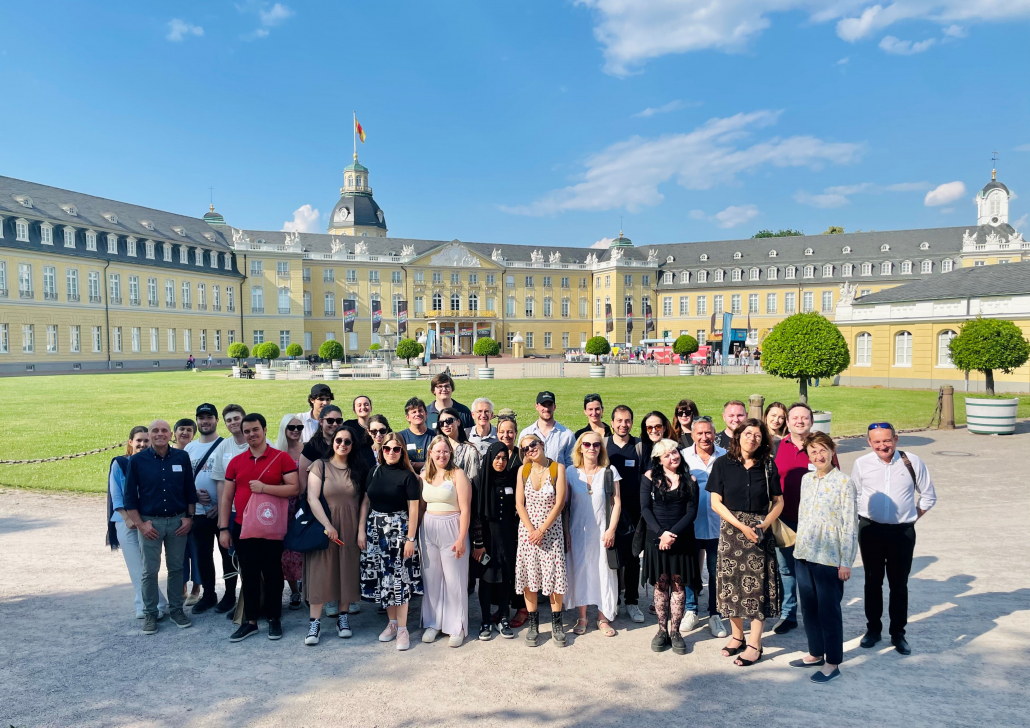Well-being and intercultural bonds: insights from a participant’s experience at INGENIUM’s Junior School
Group photo of participants of INGENIUM Junior School in front of the Karlsruhe Palace
Back in June, Jesús Vera Berdasco embarked on a unique educational journey by participating in the inaugural edition of INGENIUM’s Junior School in Karlsruhe. As the President of the Student Council at the University of Oviedo, Jesús’s decision to join the 10-day program was driven by an interest in fostering intercultural connections.
In this interview, Jesús provides an insider’s perspective on his experiences during the program, shedding light on its structure, impact, and the valuable insights he gained.
Can you please share with us what motivated you to apply for a place in the inaugural edition of the INGENIUM 10 Days program?
As the President of the Student Council at the University of Oviedo, I had been closely following the progress of the INGENIUM alliance for quite some time. When the program for the Junior School in Karlsruhe was announced, I knew right away that I wanted to immerse myself in that experience and share it with others.
Being a student at the University of Oviedo, what steps did you take to secure a place in the Junior School in Karlsruhe?
Unlike the rather complex application processes for programs like Erasmus mobility, the application for the Junior School was relatively straightforward. The requirements were clear: meet the profile criteria and demonstrate proficiency in English at a B2 level. Once the final selection was made, I gladly accepted the offer.
Upon learning that you had been chosen, what were your expectations for what you would gain from this experience?
Given my involvement in the Student Council, my main expectation was to connect with fellow student representatives from the diverse INGENIUM Alliance and learn about the functioning of their respective representation bodies. Additionally, I was eager to explore the educational aspect of the program, which focused on promoting diversity, inclusion, and campus well-being.
Did the reality live up to your expectations?
Yes, although the experience was slightly different from what I had initially anticipated. I had imagined the program to be primarily theoretical, but to my surprise, it turned out to be five days filled with dynamic and practical formats. This approach facilitated my understanding of the key concepts surrounding diversity and campus well-being. The organisers ensured that the information was effectively communicated to us.
